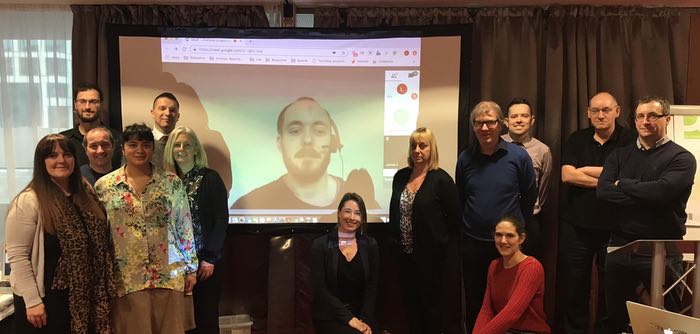About the project
A short introduction by project lead, Neil Lawrence of Oxford City Council
“Starting from scratch”
When we first starting discussing this project as a group of councils we had a common problem; we wanted to explore the opportunities that chatbots and AI could offer us and our customers, but it was difficult knowing where to start.
There are multiple platforms available, and countless suppliers that are offering services to build apps. Which is the right one to choose?
But more importantly, are these technologies the right ones to deliver improvements for customers? Or are we just chasing efficiencies or the latest tech because we think we should? Shouldn’t we start by finding out what the user needs are?

Reinventing the wheel
The temptation with new tech is to dive straight in and start doing something. Find a platform, spend some money, build something and see how it is received. But we realised this would be history repeating itself. Local Government has often approached adopting digital tools through individualism; everyone adopts their own version of the best solution, and the sector gets fragmented by reinventing the wheel over and over.
Changing the approach
There have been some great initiatives to help bring the sector together;
- LocalGov Digital developed the local government version of the Digital Service Standard to unify the sector’s approach to developing services
- Government as a Platform is providing common tools that the public sector can use to build great digital services
- LocalGov Digital is using Pipeline to promote projects and collaboration on them, and a new User Research Library is furthering this
We wanted to use this project as a way to influence how the sector moves forward on chatbots and AI by providing a set of research and tools to help inform everyone that is ‘starting from scratch’
Who is involved

The project is led by Oxford City Council, in collaboration with
- Hertsmere Borough Council
- Cheltenham Borough Council
- Doncaster Council
- Preston City Council
- North East Derbyshire District Council
- Bolsover District Council
- Rotherham Metropolitan Borough Council
- Bromsgrove District Council
- Redditch Borough Council
- Surrey County Council
- Adur and Worthing Councils
The delivery partner for the project is Torchbox
Our commitment to sharing
We’ll commit to making this a project that all of local government can use by;
- blogging about the work we undertake, the lessons we learn and the mistakes we make
- engaging with a digital agency that commits to sharing its work
- publish the outputs of the user research we undertake
- provide a business case template for others to use
- provide a summary of current tech in this area as an overview for others to use
Collaborative tools we’re using
We’re looking to use free web-based tools to help us deliver this project.
This project website is hosted on GitHub Pages and uses Forestry as a static site CMS. We’ll also be using our GitHub repository as a means for others to access the project deliverables and research materials
To help us collaborate on shared content, like developing our fund application and taking meeting notes, we use Google Docs. We’ve used Google Forms to get quick responses from everyone and record them, such as selecting a research area to work on.
For coordinating work and communicating with each other we’re using a dedicated Slack team and ensuring everyone is signed up/committed to using as our prime source. We also use this to share our project documentation and photos easily.
We’ve tried Google Meet for our Show and Tell sessions, but had issues with recordings so are using Zoom.
As we approach the end of the project we’re using FunRetro to gather our collective thoughts on how the project ran.
Training we’re undertaking
As part of the MHCLG bid success we’ve been able to access free training from the GDS Academy. For us this meant a three-day Agile for Teams course in London.
As part of our work with our delivery partners Torchbox we’ve had a 1-day user research training course.